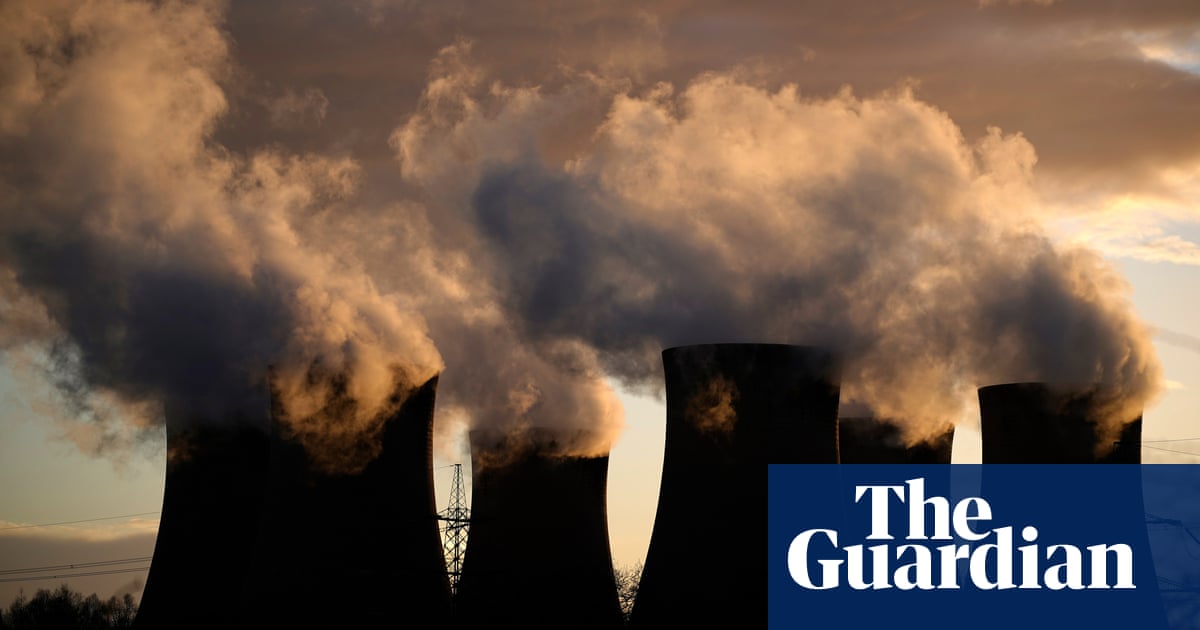
The owner of the Drax power plant will give its shareholders a £150m windfall after reporting its highest-ever annual profits, thanks in part to record electricity prices.
The FTSE 250 company also said it was pausing investment in its controversial carbon capture project while it waited for more details from the government on a possible subsidy.
Drax told investors it would buy back shares worth £150m – a move that could help inflate its share price – after the cost of electricity soared after Russia’s full-scale invasion of Ukraine, helping the group make annual profits of £731m in 2022, up from £398m the year before.
It added that it would defer plans to invest about £50m in carbon capture technology at its power plant’s biomass burning units this year while it waited for the government to include the project in its funding scheme.
Will Gardiner, the chief executive of Drax, set out plans to pause the project before the company’s annual general meeting on Wednesday as it emerged the energy regulator had opened an investigation into whether Drax’s activities were aligned with biomass sustainability rules.
The meeting was disrupted by protest from campaigners opposed to the use of biomass. About 20 members of a group called Axe Drax who hold single shares in the company in order to access the meeting were removed by security.
Stephanie Pride, who joined protesters in Yorkshire, said: “I’m taking this action today to let shareholders and the public know where their money is going when they invest in Drax. While energy prices go through the roof, as bill payers and tax payers we have no choice but to subsidise this ecocidal, climate-wrecking project, which hoovers up £1.7m in subsidies every day.
“Shareholders have a choice. If they really care about sustainability and securing a liveable world for all, they would invest in proven clean technology and protecting the natural world, not destroying it for a quick profit. We cannot allow Drax’s greenwash to power a future which is no future I want to be part of.”
Ofgem has launched its investigation, which will be undertaken by the US consulting group Black & Veatch, amid growing concerns over net zero claims around Drax’s bioenergy plant, according to documents released after a freedom of information request by the Financial Times.
Drax’s own climate scientists advised the company in a report that it should stop saying its biomass power units were “carbon neutral”. The firm has faced fierce criticism from green groups for claiming renewable energy subsidies for burning wood pellets known as biomass, which are produced from forests in Canada and the US.
There are also growing calls for UK ministers to scrap subsidies for the plant in its upcoming biomass strategy paper expected by the end of June.
Drax claims the carbon emissions released from the plant are matched by the emissions absorbed by the trees as they grow, making the electricity generated carbon neutral. By adding carbon capture technology to the plant it could generate “carbon negative” power, according to Drax.
These claims have been contested by scientists and campaign groups, who argue that importing wood pellets from North America is not sustainable and may be increasing carbon emissions.
Drax’s subsidies are due to end in 2027 but the group – which generates about 6% of the UK’s electricity – is hoping to gain new ones through the government’s carbon capture programme.
The plans were dealt a blow last month after the government’s long-awaited energy strategy appeared to rule out the project from the initial tranche of projects vying for subsidies.
Gardiner said the company remained “excited about the opportunity” to pursue its biomass and carbon capture plans in the UK. He told investors on Wednesday, before the AGM, that it had “commenced formal discussions with the government” to facilitate the plans by 2030, three years later than planned.
A spokesperson for Drax said: “The science that underpins our approach is complicated, nuanced and evolves, and we take our responsibility to continue to develop our explanation of it very seriously.”












